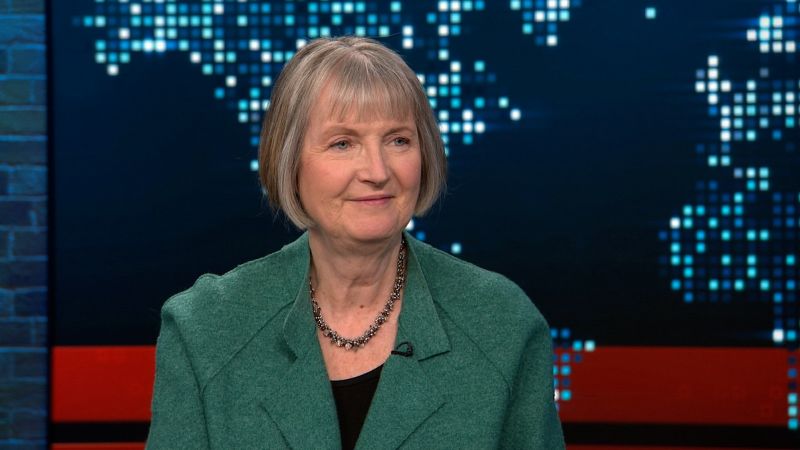ALBANY, N.Y. — Minimum wage workers in New York City will get a pay bump for the first time in five years. Out-of-state students at city and state universities will face a tuition hike. And cigarette smokers will need to pay an extra dollar in taxes per pack.
New York State lawmakers approved a $229 billion state budget on Tuesday night that will touch on New Yorkers’ everyday life, after completing protracted negotiations with Gov. Kathy Hochul that delayed its passage by over a month.
This being Albany, of course, the closed-door negotiations centered much less on the state’s finances than they did on contentious policy changes that were stuffed into the final budget legislation.
Democrats, who control the triumvirate of power in the State Capitol, changed the state’s bail laws, passed new fines for unlicensed marijuana shops and enacted a ban on gas stoves and furnaces in new buildings, making New York the first state to pass such a measure.
Here’s what to know.
Judges will have more discretion
For the third time since 2019, New York amended its bail laws to make it easier for judges to hold people accused of crimes while they await trial.
This year’s change removed language that required judges to set the “least restrictive” conditions necessary to ensure defendants did not flee prosecution, instead urging them to choose what they believe is “necessary to reasonably assure” defendants’ return to court, as they did before the 2019 changes to the bail law.
And while the law maintains the 2019 prohibition against setting bail for most misdemeanor and nonviolent felonies, it will nonetheless invite judges to set harsher release conditions for all crimes — higher bail for those crimes where bail may be set, and more restrictive conditions, like monitoring, where it cannot.
It is not yet clear just how much impact these revisions will have in practice: Judges are still limited by the language that defines bail as a tool to ensure that a defendant returns to court. Judges must also still consider a defendant’s ability to pay.
But some opponents believe that judges who were looking for reasons to keep people in jail could view these changes, and the governor’s signaling around them, as justification to do so.
The minimum wage will go up
The state’s minimum wage is going up by a few dollars, gradually, over a few years. It will then be pegged to inflation, mimicking an approach in a growing number of states.
The minimum wage in New York City, Long Island and Westchester County, currently $15 an hour, will increase to $16 by 2024, and by 50 cents in each subsequent year until it reaches $17 by 2026. In the rest of the state, the minimum wage will hit $16 by 2026, up from the current minimum of $14.20.
Starting in 2027, the pay rate would increase according to the federal government’s Consumer Price Index. There are some exceptions: Wages wouldn’t go up if the state is losing jobs or facing poor unemployment numbers.
The amount of the increase upset labor unions and progressive Democrats who were seeking to boost the minimum wage above $20, arguing inflation had made it increasingly hard for poor and working-class New Yorkers to stay afloat.
Republicans in the minority opposed raising the minimum wage, as well as most policy items included in the budget.
Illegal weed shops will face crackdown
The state will have new tools to tackle the proliferation of shops selling marijuana without a license, a conundrum officials have been contending with as the legal marketplace for cannabis slowly takes shape.
State tax authorities will now have the authority to inspect any business location, including vehicles, that are selling cannabis, granting them a power that regulators said they needed to effectively crack down on illicit shops.
The fines for retailers possessing untaxed weed start at $7,500, with additional fines of up to $100,000 depending on the amount of weed for sale. Retailers may also be fined two to three times the amount of tax that would have been collected. Landlords who permit unlicensed shops in their premises could be on the hook for $10,000 a day in fines.
Unlicensed smoke shops, including those that practice gifting or set up as membership clubs, may also face civil tax fraud charges.
State passes gas ban and leans into renewable energy
Democrats agreed on two far-ranging proposals aimed at ending the state’s dependence on fossil fuels and aggressively tackling climate change.
The first will bar the use of fossil fuels for heating and cooking in new construction. The law, the first statewide ban in the nation, will go into effect for buildings under seven stories beginning in 2026; larger buildings will need to comply by 2029. It will not affect gas stoves in existing homes and includes exceptions for manufacturing, emergency generators and hospitals, among others.
The other measure allows the New York Power Authority to build, own and operate renewable energy facilities to help New York meet the goal of reducing emissions by 85 percent by 2050. Progressives, particularly democratic socialists, had championed the measure, which they said would control consumer costs and help to ensure beneficial working conditions.
The measure will allow the Power Authority to partner with private developers, so long as the state owns the majority of any project. It will also require New York City to shut down any so-called peaker plants still in operation by 2030, if possible.
The industry fiercely opposed both proposals, saying they would raise costs for consumers and stress the electrical grid.
M.T.A. will get more money and five free bus routes
Leaders in Albany agreed to funding to help stave off a catastrophic money crunch for New York City’s subways and buses.
In light of the Metropolitan Transportation Authority’s impending $3 billion budget deficit, lawmakers called for a one-time payment from Albany of $300 million and $165 million annually from New York City. It also included money from an increase in payroll taxes on large businesses based in New York City, which is expected to yield $1.1 billion, and from tax revenue from casinos that will open in the near future.
The agreement will help to stave off one proposed fare hike, though others are on the horizon.
Riders are likely to hail the inclusion of a new pilot program that would offer five free bus routes, one for each borough. The lines will be chosen based on a set of factors including ridership and if the area serves a commercial hub.
And in an effort to make service more efficient, buses will be equipped with cameras with the ability to issue tickets for traffic violations.
New charter schools will open
Fourteen charter schools will be allowed to open in New York City, and eight elsewhere in the state, partially fulfilling one of Ms. Hochul’s core priorities.
The decision to revive so-called zombie licenses, which were awarded to schools that then closed, reignited a perennial debate in Albany around charter schools, which are publicly funded but privately operated.
The final deal fell far short of Ms. Hochul’s desire to lift restrictions to allow over 100 new charter schools to open, a proposal that had angered many Democrats and teachers’ unions that had endorsed the governor.
What didn’t make the cut
This year’s budget was equally notable for policy aspirations that fell off the negotiating table.
The governor held the line against Democrats who were seeking to increase income taxes on millionaires. And lawmakers did not get on board with Ms. Hochul’s proposal to ban the sale of menthol cigarettes.
But the biggest victim was the governor’s ambitious housing plan, which sought to build 800,000 homes over the next decade through new construction mandates. Her plan unraveled following opposition from many lawmakers and local officials in the suburbs.
On Tuesday, Ms. Hochul said she would continue to pursue the plan, though she suggested those efforts might need to wait until next year’s budget.
The only major housing policy development was a $391 million injection in rental assistance that could help residents in public and other types of subsidized housing.
Ashley Southall and Mihir Zaveri contributed reporting.







More News
Gaza Authorities Say More Bodies Were Discovered in Mass Grave
José Andrés Eulogizes 7 Aid Workers Killed in Gaza
Ukraine Could Use New Weapons to Hit Russian Targets in Crimea, Pentagon Says